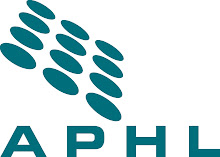In honor of Laboratory Professional Week, APHL would like to highlight some of the activities that it conducts on behalf of members. The Laboratory Systems and Standards (LSS) program works with public health and laboratory partners to build the foundation for quality testing: comprehensive standards and integrated public health laboratory systems.
Vaccine-Preventable Disease Project
As the incidence of Vaccine-Preventable Diseases (VPD) decreases in the US, the capacity and capability of state and local public health laboratories to perform VPD testing has declined, becoming increasingly inconsistent. While some labs are quite proficient in VPD testing, others are eliminating testing altogether. However, timely and accurate diagnosis of VPDs is essential to identify and control outbreaks and to provide the information needed to improve vaccines and vaccination programs. To address gaps in testing capacity for VPDs, APHL was recently awarded funding through the American Recovery and Reinvestment Act of 2009 (ARRA) to provide training programs and quality improvement activities for VPD testing in public health laboratories. The association is partnering with CDC to develop and present these programs.
The first initiative is a series of teleconferences targeted to public health laboratorians. To date, CDC subject matter experts have presented new diagnostic testing methods for several VPDs, including Bordetella pertussis (whooping cough), Streptococcus pneumoniae, measles virus and mumps virus. The mumps educational teleconferences have been especially timely in light of the ongoing mumps outbreak in the northeastern United States. State public health lab staff are being trained in the new mumps assay developed at CDC. Access to this assay will enhance patient diagnosis and epidemiological investigations in participating states.
In response to a recent survey of public health labs’ training needs for VPDs, more trainings and quality improvement activities are planned, including hands-on workshops, proficiency testing exercises and assay comparison studies. By working together on these activities, APHL and CDC look forward to helping public health laboratories to improve their capability to quickly and accurately detect cases of VPDs.
Voluntary Accreditation Program
“Continuous quality improvement” is part of the laboratorian’s credo. Assays and equipment must meet precise quality standard before they can be utilized in the laboratory. Now APHL is developing voluntary standards specific to public health laboratories that will be used to assess the quality of the laboratory itself and specifically its operations and functions. These new standards will not supplant CLIA, but be used as a complement to the federal regulation.
The accreditation program will be voluntary, and will integrate standards from existing domestic and international sources as well as those outlined in the Core Functions of Public Health Laboratories.
Incorporation of the public health laboratory standards will be proposed to the Public Health Accreditation Board (PHAB) for incorporation into their accreditation process. Accreditation will signify that the laboratory has met agreed-upon standards of quality and that it ascribes to them as a measure of its services.
APHL is convening a Think Tank with PHAB at the end of April to discuss how the program should look, be structured, and what elements should be included in such a partnership. Information from the Think Tank will be shared with membership on the APHL web site and through reports in Lab Matters.
Laboratory System Improvement Program (L-SIP) Assessment
To make it easier for labs to find quality improvement and performance-related materials, APHL provides a one-stop-shop for resources to improve the quality of state public health laboratory systems. One of those tools is the Laboratory System Improvement Program (L-SIP) assessment tool. During an L-SIP assessment, representatives of the state public health laboratory system and partners convene to assess the performance of state public health laboratory system. This program provides a user-friendly process, including a performance assessment tool for assessing and establishing a baseline measure of performance.
Most recently, South Dakota has scheduled our Laboratory System Improvement Assessment for April 29th. We have closely followed the recommendations of the APHL L-SIP Assessment Tool User's Guide, a document that walks the coordinators through the assessment preparation process and includes sample materials such as letters to participants and agendas. For this lab and the others who utilize the L-SIP assessment tool, they find that it offers a means for strengthening relationships with public health, clinical and other laboratories and partners that comprise the broader laboratory system, as well as a framework for continuous improvement of public health laboratory systems.
We are looking forward to convening our system partners later this month to discuss our state public health laboratory system and what we can do to improve it.
Wednesday, April 21, 2010
Subscribe to:
Post Comments (Atom)





betmatik
ReplyDeletekralbet
betpark
tipobet
slot siteleri
kibris bahis siteleri
poker siteleri
bonus veren siteler
mobil ödeme bahis
X4BEP
bahis siteleri
ReplyDeletehttps://bahissiteleri.io
youwin
bets10
1xbet
EEU75B
salt likit
ReplyDeletesalt likit
heets
canlı sex hattı
https://girisadresi.info/
HKJ8M
kastamonu
ReplyDeletekayseri
kıbrıs
kırıkkale
kırşehir
7OXP
adana
ReplyDeleteadıyaman
afyon
ağrı
aksaray
043Y
bursa
ReplyDeletemalatya
denizli
şirinevler
esenyurt
Q2C
مكافحة حشرات 9HkAVS5dzr
ReplyDeleteشركة تسليك مجاري بخميس مشيط RJXGemyP0n
ReplyDeleteعزل اسطح جدة
ReplyDeleteETEC2Dx7ns
شركة عزل اسطح بالقطيف
ReplyDeleteIQzKXUERfc
تسليك مجاري الجبيل
ReplyDeletebg7pGOqJGLT
شركة تنظيف موكيت بالاحساء
ReplyDelete01D72pz1m2C6
شركة تنظيف مراتب بالاحساء
ReplyDeletekeqd3p82tSjWX